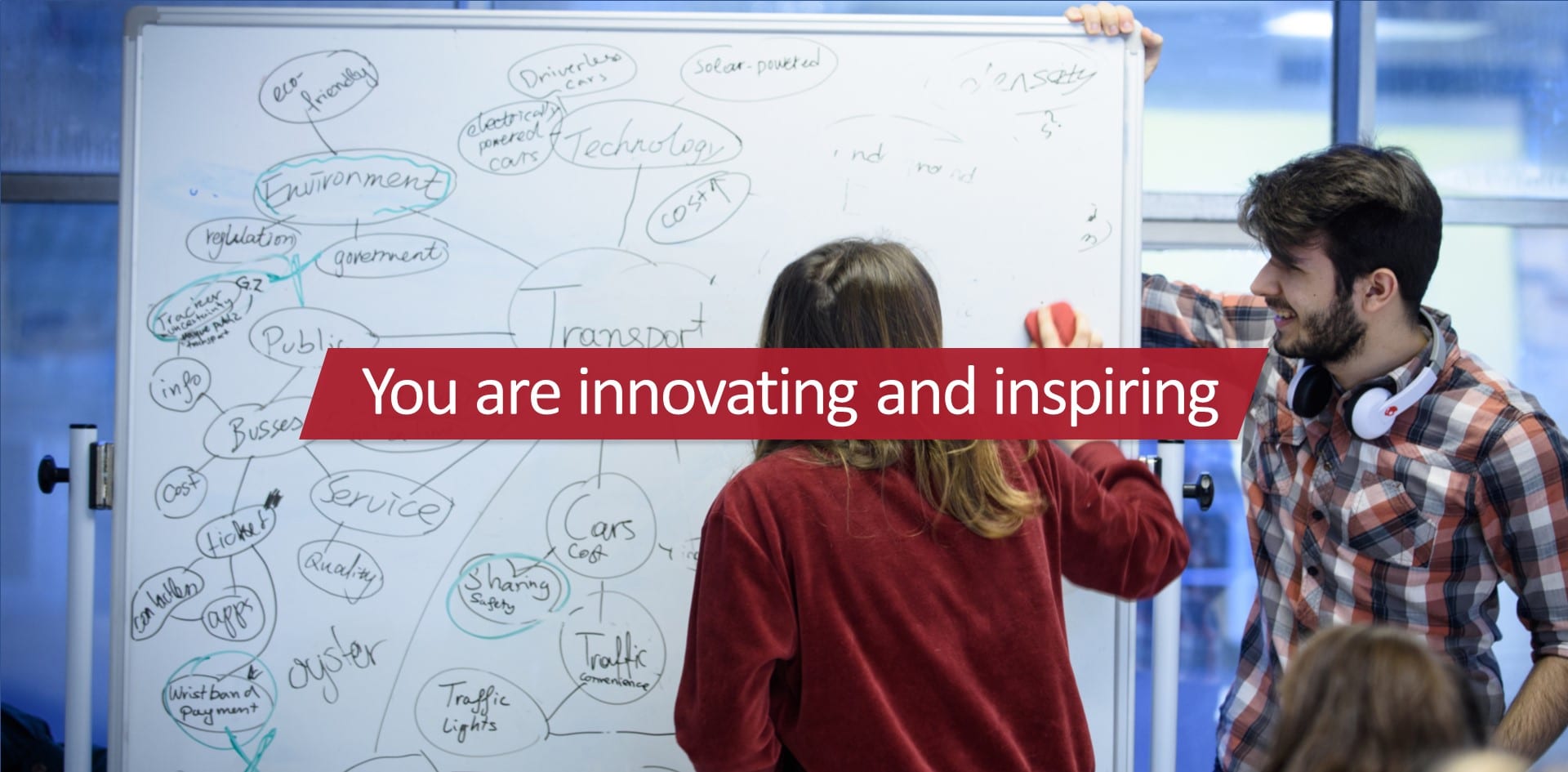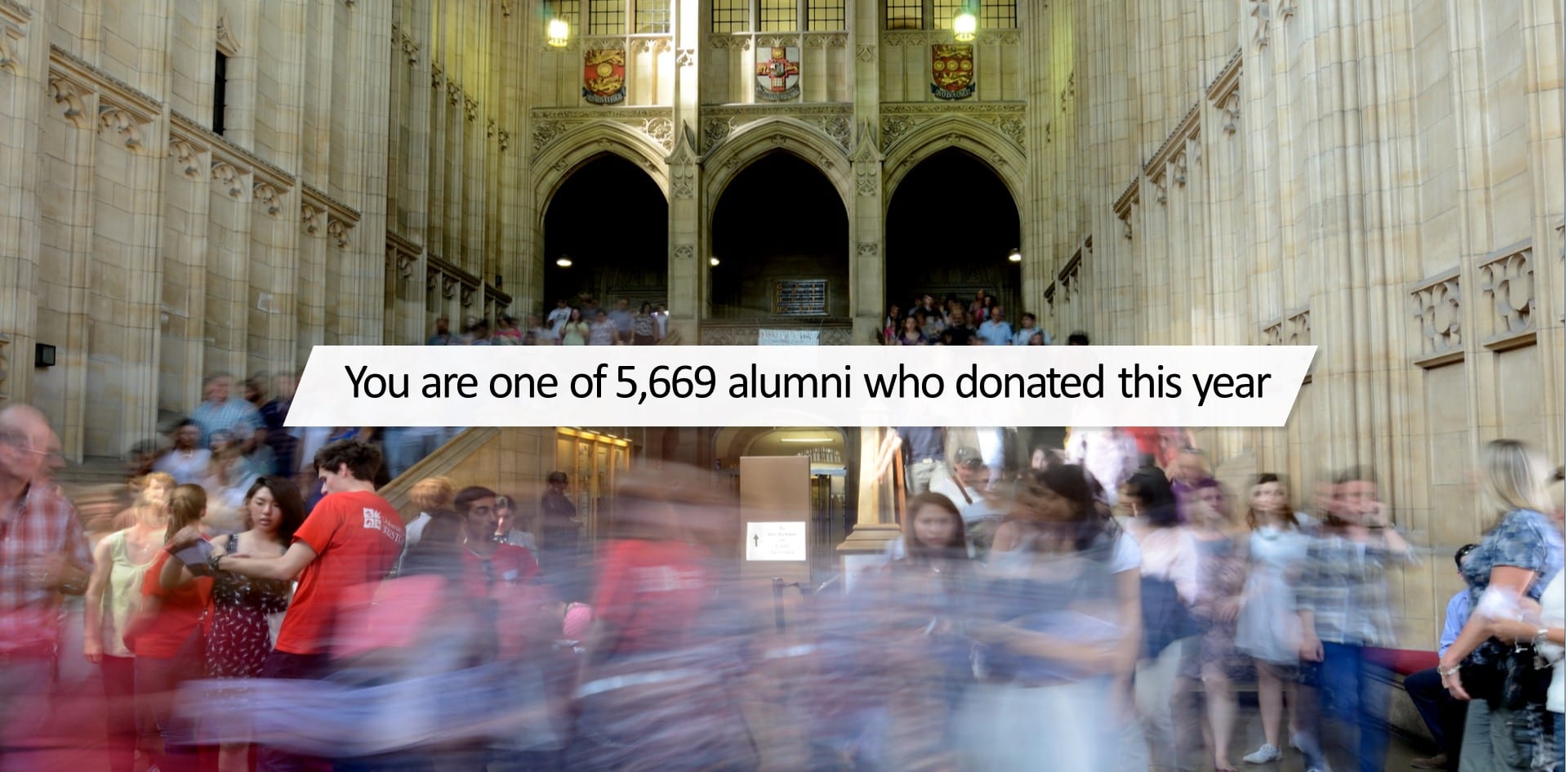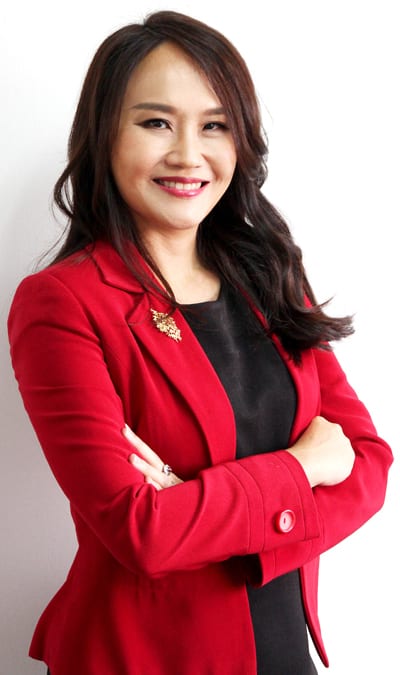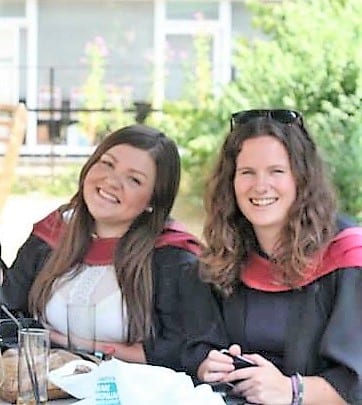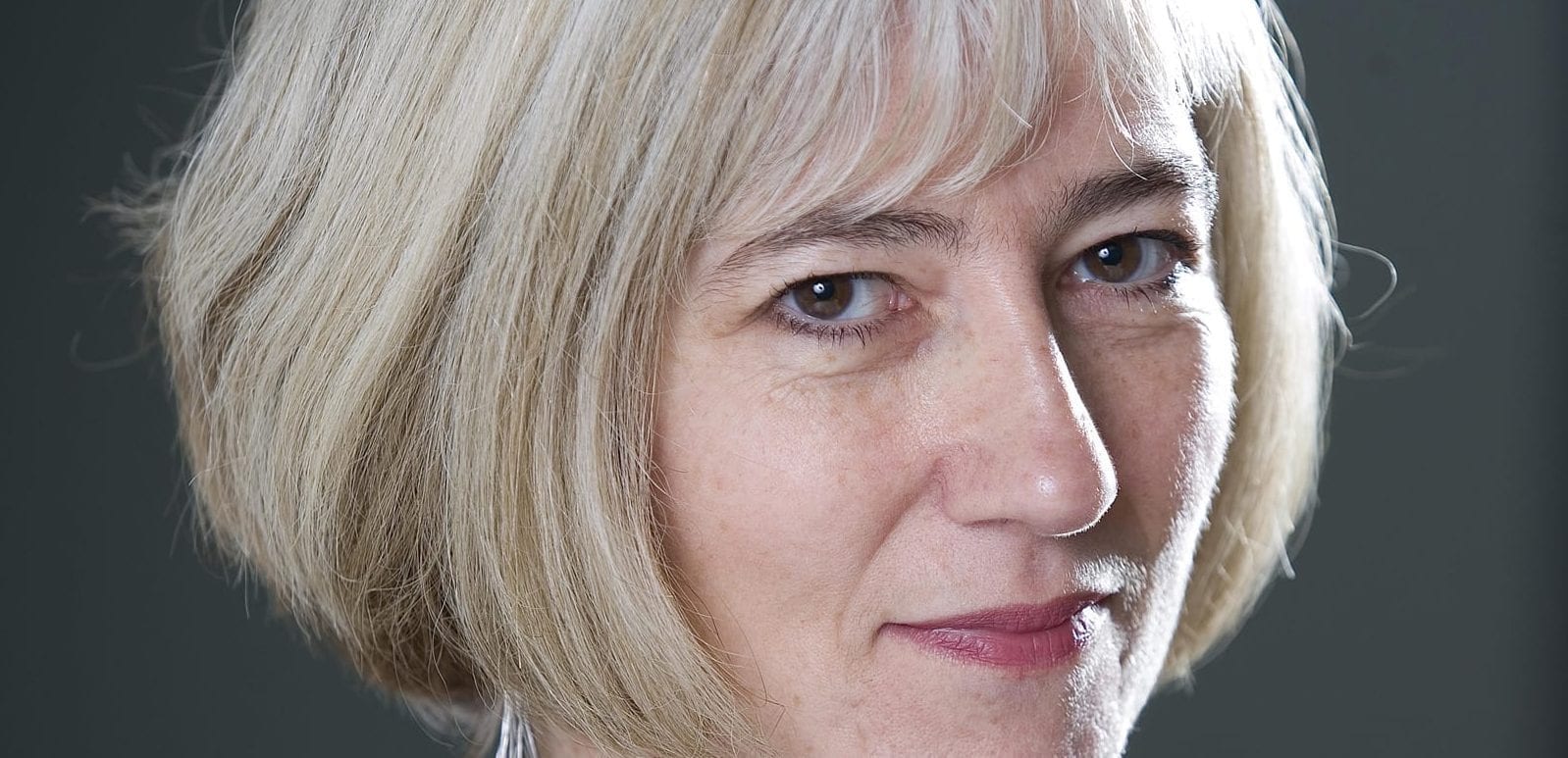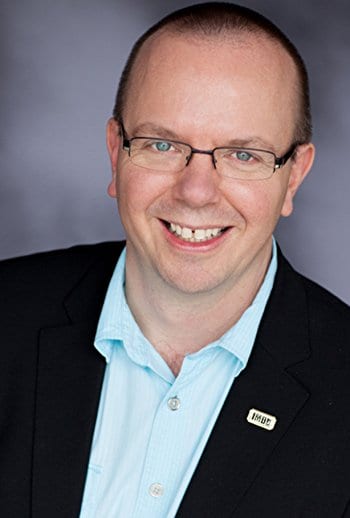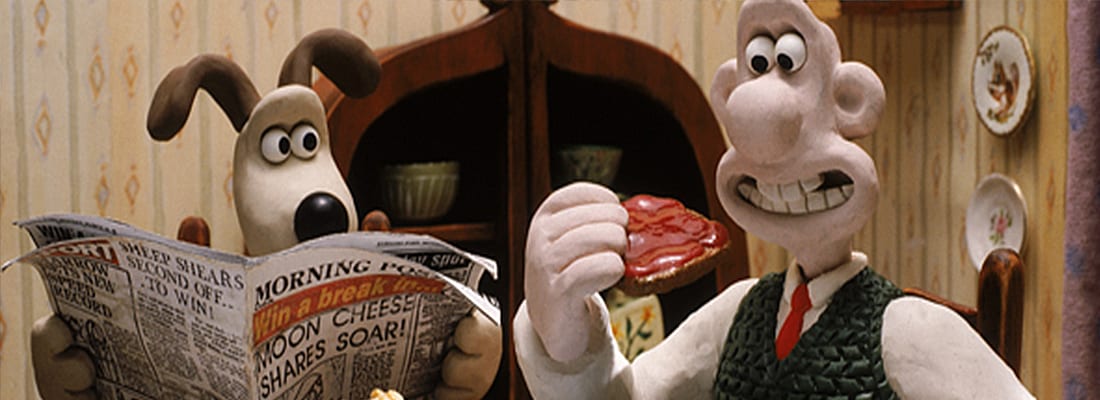 Traditional notions of libraries are changing. The University has announced plans for a new £80 million library to be built at the heart of the Clifton campus – we’ve collected opinions on what the future of university libraries will look like.
Traditional notions of libraries are changing. The University has announced plans for a new £80 million library to be built at the heart of the Clifton campus – we’ve collected opinions on what the future of university libraries will look like.
Why does Bristol need a new library?
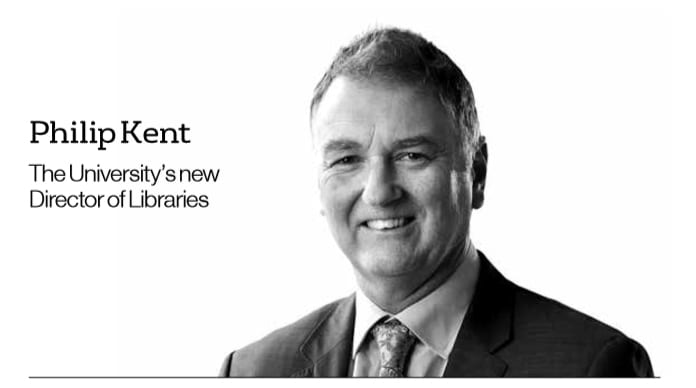 It’s been a long-term dream of the University to upgrade this library. The Arts and Social Sciences Library is quite old now and if you consider when it was built, a lot has changed: how students study, the resources needed, the technology, their interaction with each other. We are really excited about Bristol’s new £80 million library development at the heart of our Clifton campus. Ultimately, students are here to be educated and it’s important to invest in quality facilities that inspire innovation and discovery
It’s been a long-term dream of the University to upgrade this library. The Arts and Social Sciences Library is quite old now and if you consider when it was built, a lot has changed: how students study, the resources needed, the technology, their interaction with each other. We are really excited about Bristol’s new £80 million library development at the heart of our Clifton campus. Ultimately, students are here to be educated and it’s important to invest in quality facilities that inspire innovation and discovery
My own background is in History, English and Geography, so I’m very conscious that the library is a laboratory for Arts and Social Sciences students. It will function as a community and a collaborative space for students, where they can do self-study but also interact with their peers. It will be a library for the whole University, and provide an opportunity to step up our provision for students. Fundamentally it will support the educational experience, where learning will be extended through exposure to new ideas, space to reflect, and of course books will be front and centre. The new library will also have a gallery space, which will enliven the academic experience and exposure for Arts and Social Sciences students in particular. Students at
Bristol have access to incredible academic and cultural materials that many other universities are not able to provide. Gallery space, showcasing and celebrating our University’s unique special collections, will help to make the most of them.
We plan to increase cultural collections for display too. We have such rich treasures: a strong feminist collection, a rare book collection, a world-class theatre collection and so many other fascinating manuscripts and archival documents which we really want to showcase. Gallery space will help our collections to become something that the whole Bristol community will be proud of.
One of my aspirations is to advance a fantastic digital experience for students. We’ll be introducing a new cataloguing and search system for library items which also links to digital resources. Students will be able to search and access online articles that the University holds subscriptions for. All this will be available via an app on their smartphones.
The library will be inclusive, accessible, inspiring, adaptable and flexible to new ways of learning and technology, and sustainable. It will be built to last and to complement the surrounding heritage. Bristol is one of the world’s greatest civic universities: it’s always been a leader and beacon of excellence, particularly in research. We all aspire to build on our inspirational teaching and further improve the student experience, and having recently moved from the University of Melbourne to take up my post at Bristol, I’m really looking forward to realising our shared vision for this wonderful new library.
Why is the design of a library so important?
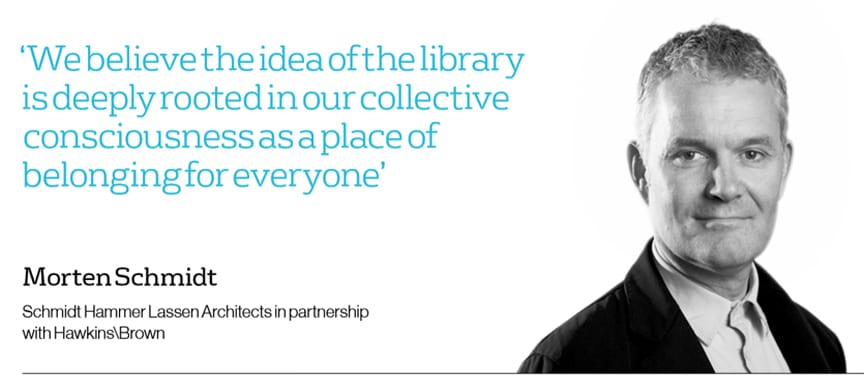 The library will be at the centre of the University’s vision for its Clifton campus to be the welcoming ‘heart’ to the University – for students, staff and members of the public alike. It will be a space for connection, with ideas and with others. Digital technologies are linking us more than ever, but we also appear to be more fragmented. Libraries are quintessentially democratic urban gathering places where an increasingly diverse user can connect for their own needs on their own terms. We produce ‘democratic architecture’ – architecture that focuses on the needs and experiences of the people who use the buildings and spaces we design. A place where diversity is valued. With each project, we observe the social habits, needs and the context of the community where our libraries are built.
The library will be at the centre of the University’s vision for its Clifton campus to be the welcoming ‘heart’ to the University – for students, staff and members of the public alike. It will be a space for connection, with ideas and with others. Digital technologies are linking us more than ever, but we also appear to be more fragmented. Libraries are quintessentially democratic urban gathering places where an increasingly diverse user can connect for their own needs on their own terms. We produce ‘democratic architecture’ – architecture that focuses on the needs and experiences of the people who use the buildings and spaces we design. A place where diversity is valued. With each project, we observe the social habits, needs and the context of the community where our libraries are built.
Libraries are in constant evolution and being at the forefront of this thinking is essential to doing the best work. We have extensive global experience designing libraries at Schmidt Hammer Lassen and our work has been honoured with 16 international awards. Designing libraries of the future is unique because of the need to adapt to shifting human behaviour in terms of how we study and gain knowledge. We are developing the way we think about libraries towards what we refer to as ‘collection to connection’. How do we design libraries that both collect knowledge and bring people together?
The foundation of our creative approach to designing libraries is the concept of a third space that lies between our homes and workplaces. The urban sociologist Ray Oldenburg says the third space is vital for civil society, democracy, citizen engagement and a sense of place. We agree. We believe that architecture affects lives. We’re not interested in building for building’s sake – we’re interested in making a positive difference.
Libraries make a difference in our lives, in connecting us. With the University’s two iconic buildings, HH Wills Physics Building and the Wills Memorial Building, the new library will stand out as the gateway to the campus, a beacon of knowledge, representing the University of Bristol, being visible from all around the Bristol urban skyline.
What does a university library mean to you?
 Inspiration. I came to the University in 1971 when the world was vastly different. I used the Wills Memorial library and can recall the hush of the busy monumental reading room, the hunt for a seat in the many alcoves. The impressive backdrop of the library with its high ceilings and formal wooden furniture was inspiring. We seemed to learn just by being in it. Back then all the resources were printed and we used a card catalogue to locate them. Although individual private study was the main mode of learning, the library was still a social space in the sense that there was an unvoiced fellowship among the hardworking users.
Inspiration. I came to the University in 1971 when the world was vastly different. I used the Wills Memorial library and can recall the hush of the busy monumental reading room, the hunt for a seat in the many alcoves. The impressive backdrop of the library with its high ceilings and formal wooden furniture was inspiring. We seemed to learn just by being in it. Back then all the resources were printed and we used a card catalogue to locate them. Although individual private study was the main mode of learning, the library was still a social space in the sense that there was an unvoiced fellowship among the hardworking users.
Although I was the first person in my family to enter higher education, I was no stranger to libraries. I grew up with the public library as a second home, secured a Saturday job shelving books, and worked on the service counter when I was a student. I learned valuable lessons about delivering face-to-face library services. This stood me in good stead throughout my career as the
University Librarian and Pro Vice-Chancellor at the University of Leicester including overseeing the £32m library renovation project there in 2008, which went on to win numerous library and architectural awards.
Some years ago, pundits were predicting the end of libraries in the digital age, but there has been more investment in academic library buildings and higher use of those facilities than ever before. Far-sighted institutions are demonstrating that libraries have a unique role in expressing and embodying the mission of the university.
It’s thrilling that Bristol sees the library as the hub of the Clifton campus and significant investment has been earmarked to support this conviction. It’s good to hear that extensive consultation on the detailed plans is to take place too – the most important and stimulating part of the project if the library is to become truly the heart of the University. The vision of libraries, evident when I was at Bristol, endures in the digital age: an inspiring environment to support learning and the creation of knowledge.
What will a library in the future be like?
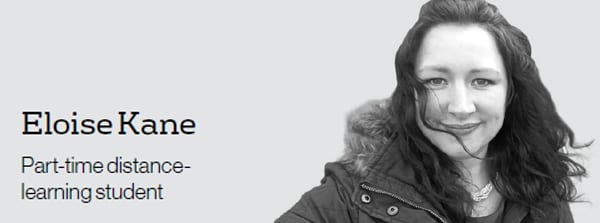 Since I was six years old, I’ve been fascinated by the past. I went on weekly excursions to the library and read everything from Ancient Egypt to the entire Nancy Drew series. I was determined to be an archaeologist and thanks to AHRC funding I’m now doing a PhD in historical archaeology.
Since I was six years old, I’ve been fascinated by the past. I went on weekly excursions to the library and read everything from Ancient Egypt to the entire Nancy Drew series. I was determined to be an archaeologist and thanks to AHRC funding I’m now doing a PhD in historical archaeology.
But so much has changed since I was six. As a mother and part-time distant-learning student there are so many challenges to overcome. My hours are bound to childcare, which in rural Wiltshire is pretty restrictive moneywise and timewise. I need to incorporate archive visits, fieldwork, and teaching, and last semester required military organisation of grandparents, friends, afterschool clubs, and transport. I’m grateful that the library can post me books when I need them, but now we have the internet, lots of things are available online too.
To study the past I’ve had to dig even deeper into the future. I love the countryside, but it has a huge transport problem, which makes travelling into Bristol incredibly inefficient and impossible if you’re on a tight timescale. Technology has been essential in enabling me to pursue my passion without sacrificing time with my children. But it still has a long way to go.
My dream library would exist in two places: virtually and physically. The resources I need would be online, such as datasets and historical documents. The University has a wonderful stock of hidden knowledge held in documents and collections it’s built up over many years, and it would be great to access these more easily. Academia is also increasingly called upon to engage with the public, which can be difficult to find space for. A public-facing exhibition space is a perfect way to give postgraduates an opportunity to be involved in communicating our work. Finally, my
pie-in-the-sky dream would be an ad-hoc crèche.
My eldest daughter is now six years old, and we’ve enjoyed exploring books on topics like outer space and the Great Fire of London. By the time she goes to University I want to see increased inclusivity and accessibility in the digital and real world, so that everyone can benefit from the knowledge held and generated in these amazing places.
You can listen and download the audio version of this article here:
 Punsara Navaratna explains how his scholarship has given him an incredible research opportunity that he otherwise wouldn’t have had.
Punsara Navaratna explains how his scholarship has given him an incredible research opportunity that he otherwise wouldn’t have had.

